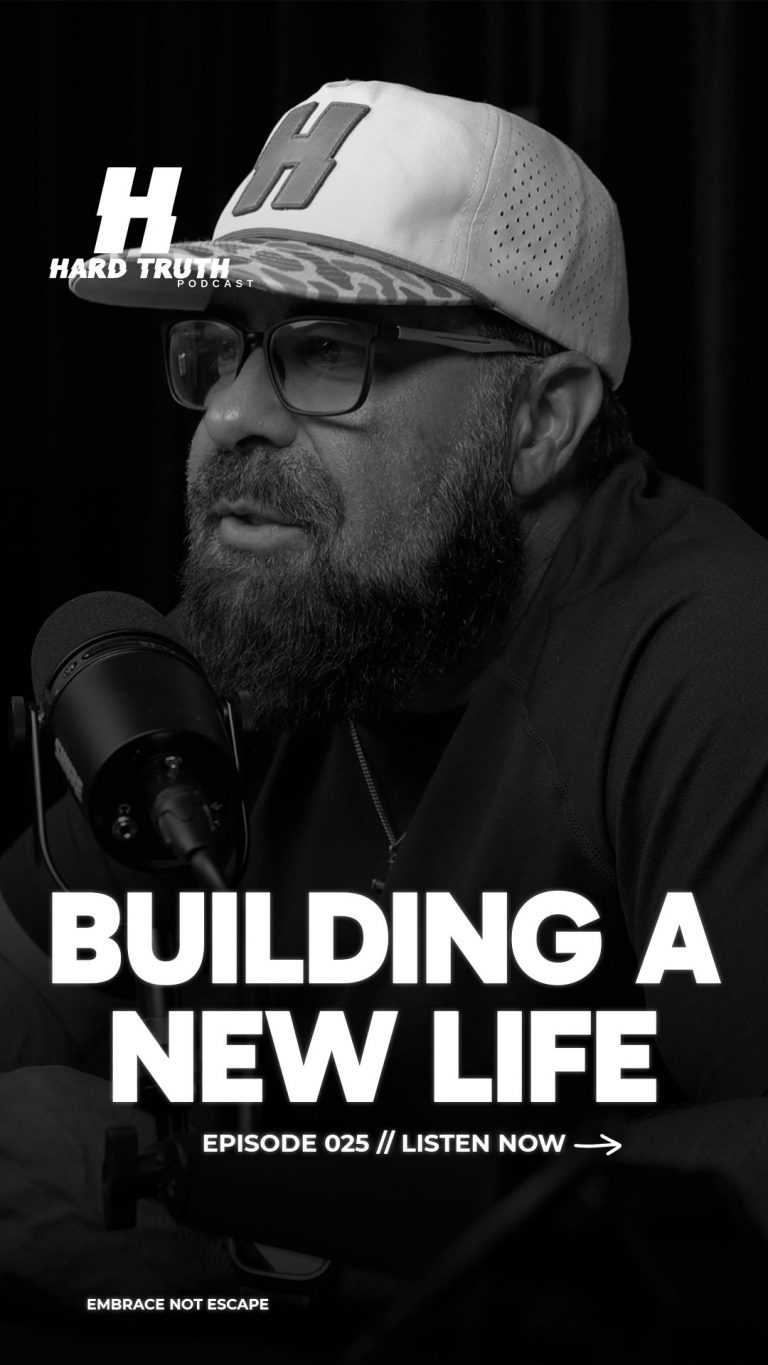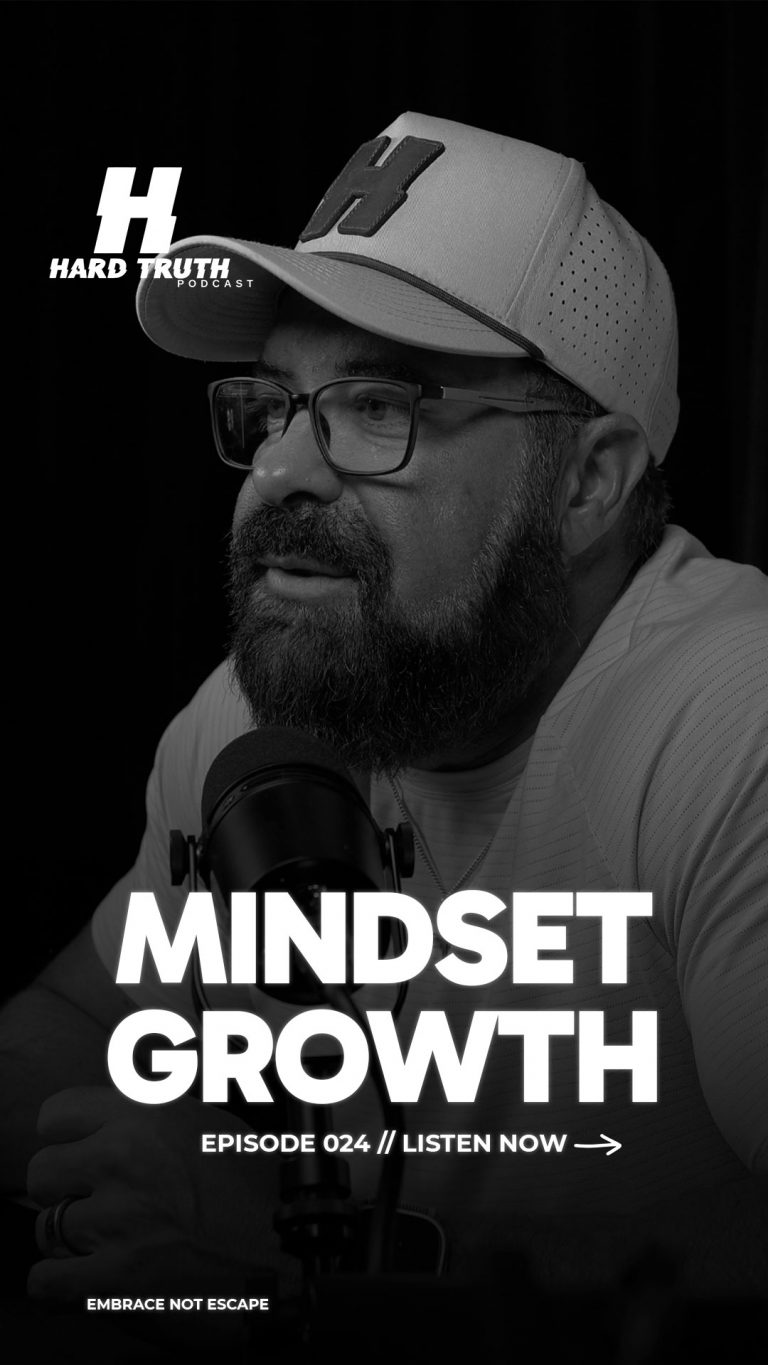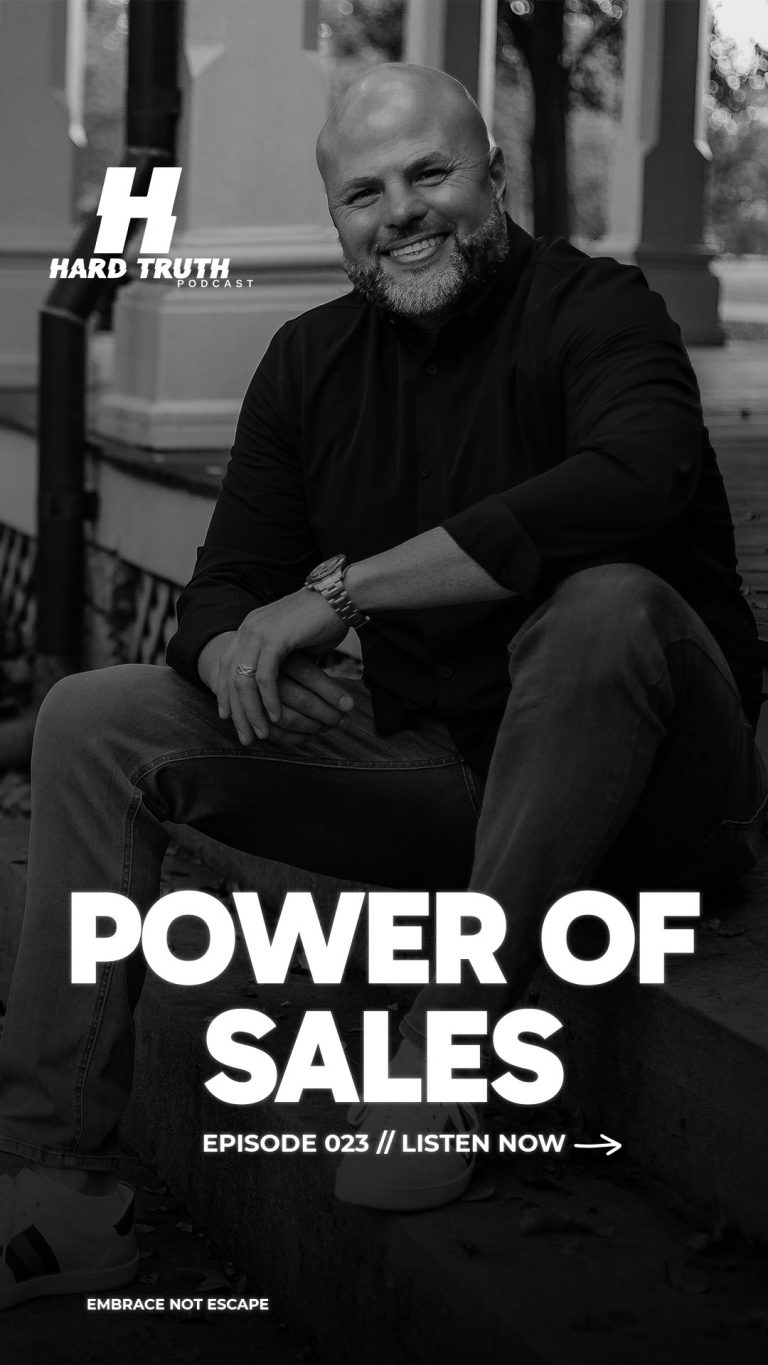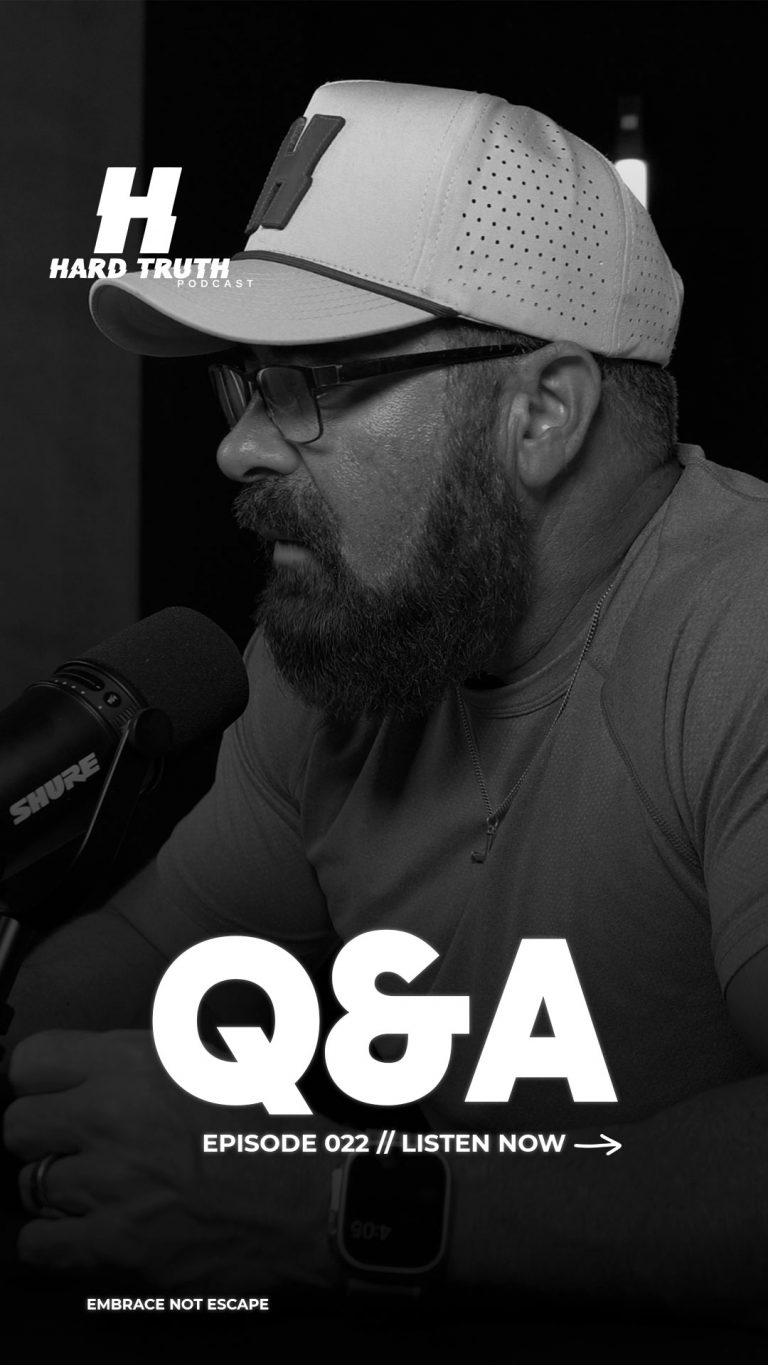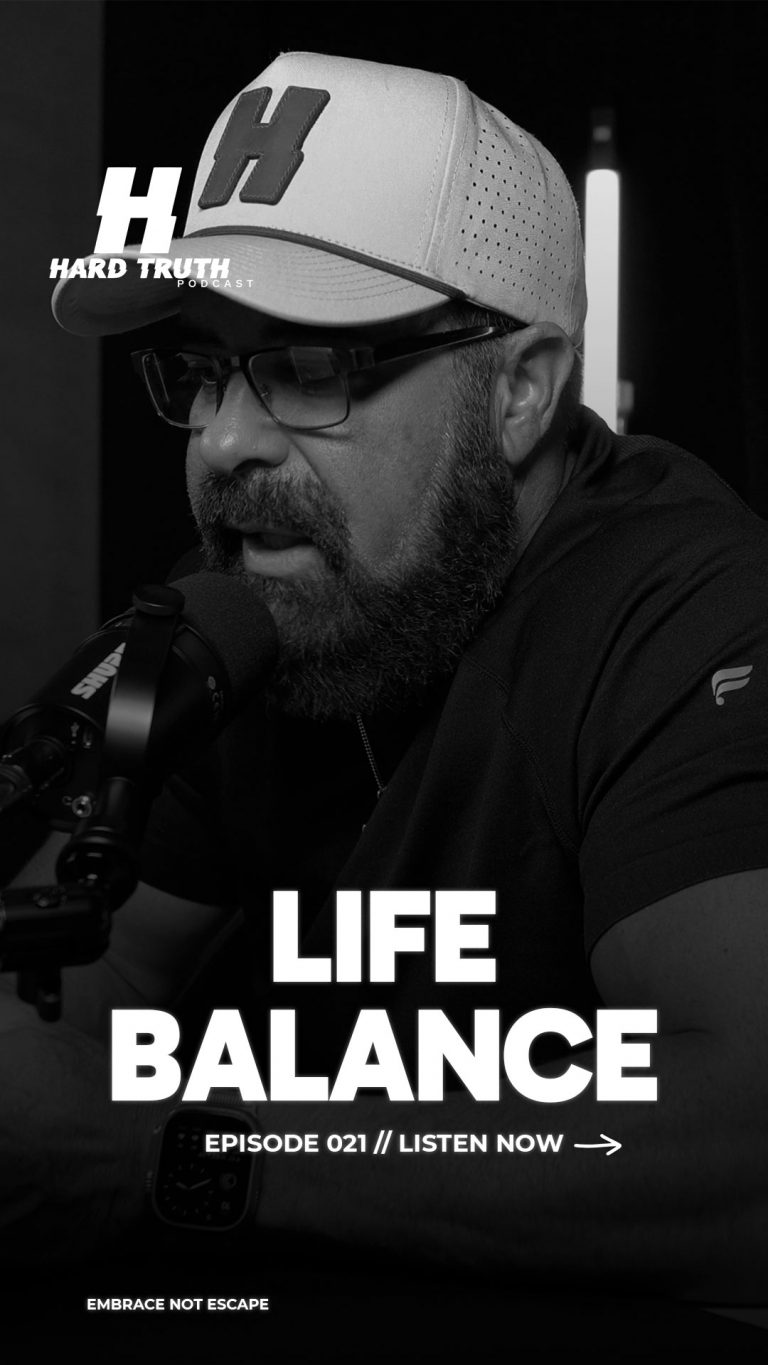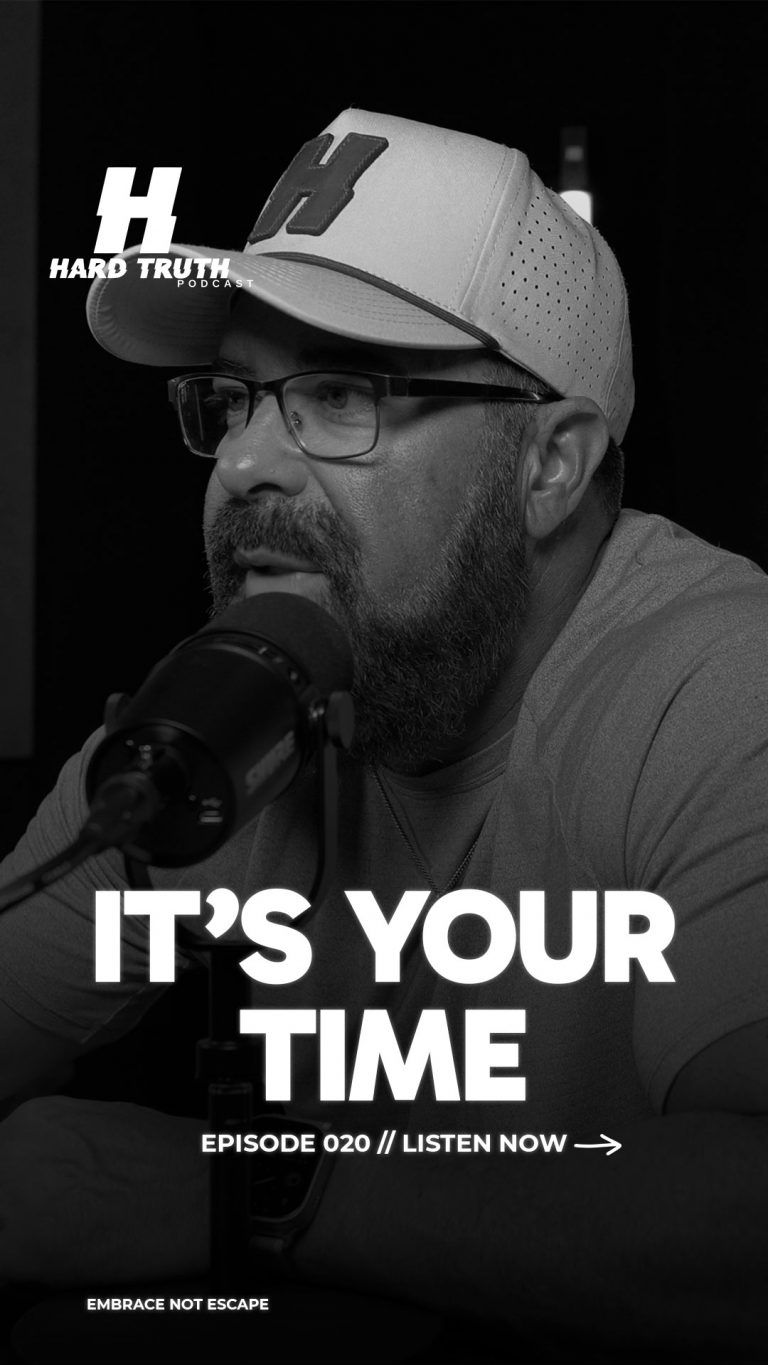Welcome to The Hard Truth Podcast.
Today, I’m gonna be talking about sleep for young athletes.
This is obviously something that I struggle with on a daily basis, is I’ve got two young athletes, but I’m gonna share with you some data from a doctor that I know will be beneficial for you to share with your young athletes.
Thank Sleep for Young Athletes.
A lot of people don’t understand the benefits from sleep.
And I’m gonna actually do another podcast just for adults.
This is gonna be a shorter podcast today, because I’m going to separate out the adults and all the healthy benefits from hormones and different things like that.
So today, I just wanted to only talk about the young athletes.
So if you have a young athlete, share this with them, and let’s make sure that they know that I believe in nutrition, I believe in hydration, I believe in training properly, but without the sleep, they are not going to become the athlete that they want to be.
That is a guaranteed.
I’m gonna share with you a research from Dr.
Mita Shing, which is a sleep doctor from Henry Ford Health System.
And she has had the privilege to be working with Detroit Pistons, a lot of different pro athletes.
And this is some mind-blowing for me data that I wanna share with you.
And I’m keeping it in a real simple form.
That way you can share with your young athletes.
I know sometimes they won’t listen to mom and dad, but they’ll listen to someone else and share this with them.
And hopefully they’ll really understand the benefits of it.
So there’s basically three things that this research study put out that I really want to share with you, because it’s simple for the athlete to understand.
And that is a teenager, first off, needs at least nine hours of sleep consistently.
Now that word consistently, they cannot get four or four nights of the week, get nine hours.
And then Friday night, Saturday night, Sunday night, you know, they’re having friends over, they’re playing video games.
It’s a consistently nine hours of sleep that is the key.
So obviously, if you have a friend over, they have a friend over on Friday night, Saturday night, be conscious of that nine hours of sleep.
If they go bed later, they need to wake up a little bit later.
Now, some of my tips here in a few minutes is talking about a routine, but we also have got to be practical and know that teenagers are not probably gonna follow a routine as strict on the weekends, but keep that in mind.
Now, here’s the first thing that happens if you do not get nine hours of sleep based on this study is that your reaction time, when you do get nine hours of sleep, let me rephrase this, the first thing that happens when you do get nine hours of sleep is your reaction time doubles or triple.
Now, you might not think that that’s big of a deal, but your normal reaction time is about a quarter of a second.
So if you think about this, if it doubles or triples, that’s the difference between catching the ball and making a touchdown or not catching it.
That’s the difference on hitting a home run or not hitting the ball at all.
That’s the difference on making that dive and play or making that good swim or whatever your athlete is.
So if it doubles or triples your reaction time, that is huge.
I mean, with nine hours of sleep, and second thing that the study covers is what will happen is if you do not get the nine hours of sleep, you will miss visual cues, which means you’re more likely to be injured.
So those that got less than nine hours of sleep was almost two times more likely to be injured than those that was getting nine hours of sleep.
You know, there’s so much into this and I wanted to keep this simple for the athletes to be able to use this.
But as far as recovery time, building muscle, all these different other benefits.
But if you keep it simple, reaction time and then injury.
I mean, that is two big pieces of it.
And then the third thing, instead of getting nine hours of sleep, if they get six to seven hours of sleep for about a week, now pay attention to this, their testosterone levels will decrease 10 to 15%.
So if you think about this, that’s like aging by 11 years.
If you don’t get enough sleep, a 16 year old will have a testosterone levels of a 27 year old.
I mean, that is crucial.
So tell your teenagers, look, you can eat right, we want you to hydrate right, train right, but by decreasing your testosterone levels, 10 to 15 percent, if we don’t get nine hours of sleep, that’s like testosterone levels of a 27 year old.
Now, I understand young athletes, so those are the three biggest things about getting nine hours of sleep.
Your reaction time, also your injuries, and then also your testosterone levels.
Now, I understand young athletes, because I have to, you know, their balance in school, so many changes in life.
You know, nutrition is big, hydration is big, and training is big.
But without nine hours of sleep, you know, they’re not going to accomplish what they want to accomplish.
Now, some of the tips that I have for you to be able to share with your athletes is, number one, they have to train and eat good.
Now, it’s been proven in this study as well that if they sleep good, they’re more likely to train good, which they’re more likely to make better food choices, and then they’re going to sleep better the next night.
So it all goes together, but it starts with a good sleep.
Now, I’m going to share with you a few more tips here.
Cool environment of 65 degrees.
Now, if you’re listening from Texas like I am, the parent that writes the electric bill might not like to hear that, but it’s been proven that they’re going to get better quality of sleep at 65 degrees than at 72 degrees.
You know, I grew up in a house that my dad wouldn’t even turn on the air conditioner.
We had an attic fan, you know, so maybe that’s the reason I’m not playing in the pros is because he didn’t keep it down to 65 degrees.
I don’t know.
No phones an hour and a half minutes, hour and 30 minutes before bed.
That’s pretty simple.
My boys bring their phone down.
They get their snack.
I recommend a snack an hour to hour and a half before bed, something simple like a protein shake.
And then they’re able to check in their phones.
And then the next thing that I always have them to do is make a to-do list for the next day.
That’s something I recommend every kid.
It’s been proven that if they take a pen and piece of paper out and they write down, I’m gonna get my training in tomorrow.
Here’s what I’m gonna do.
I’m going to eat correctly.
I’m going to baseball practice, whatever the situation, it’s been proven that they’re gonna have better sleep.
And then also, I recommend all of the parents to be an example.
What I mean by that is you can’t just be yelling, get to bed at nine o’clock or whatever, and you’re sitting there having happy hour drinks, watching Netflix, or you’re watching movies to one o’clock and they can hear the TV going all night long.
Start that process with them of dimming the lights around eight o’clock, eight thirty, getting a shower.
That’s another thing that’s big, getting a good warm shower, and then making sure that they get a good book.
It’s been proven that reading a book, a paper book before bed, they’re going to be able to tone down more, relax more, and then also make sure that they follow this routine.
So get into a family routine.
Help your teenagers say, okay, here’s the new cycle that we are going to follow.
We’re going to eat a good dinner.
You’re going to get a good snack.
We’re going to check in our phones.
We’re going to get a hot shower.
We’re going to turn down the lights.
We’re going to get a book right beside our nightstand.
We’re going to read a little bit, make our to-do lists for the next day, and then we’re going to get nine hours of good quality sleep.
Young athletes listening to this, you can do all the other things that I recommend on a daily basis, but if you don’t get the good sleep, it’s not going to matter.
You have to get good quality of sleep.
So I hope you guys enjoyed this podcast.
Share it with a friend or a family member that may find value in this.
If you have younger kids, I recommend starting on this before they become teenagers.
It’s going to be a part of it.
I tell my boys often that what’s going to make the difference when you get to college athletics versus high school athletics, the kids that figure out their nutrition, their workout programs, their sleep patterns, before they get into college, they are going to blow past every one of these young athletes that have never figured this out.
So thank you guys for joining The Hard Truth Podcast.
Leave a review, share with your friends and family.
Good day.

